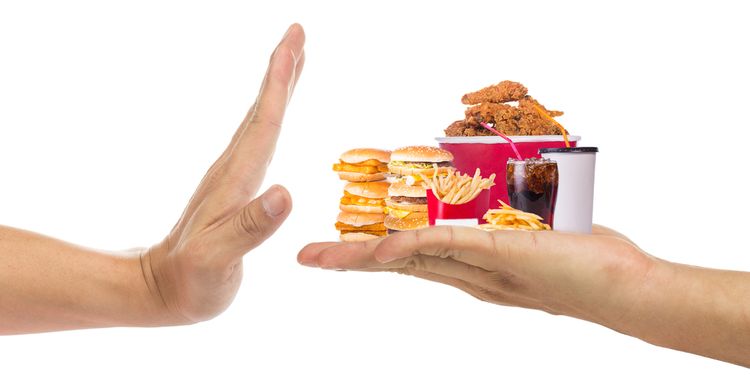10 Toxic Relationships That Are Ruining Your Health

We, as humans, are social beings designed to interact and connect. We’re hard-wired with neurotransmitters that light up our brain’s reward center at the very thought of a loved one. According to one survey on happiness, an overwhelming majority answered that love, connection, and social affiliation are more important than fame, wealth, or health.
Some theories suggest that one of the reasons we evolved so efficiently was because of our unique ability to feel empathy for other beings that we’re connected to. Social isolation can lead to detrimental health effects equivalent to those caused by high blood pressure, obesity, and smoking.9
Sometimes getting well means more than just changing your eating and sleeping habits. Our social lives can also play a big role in how successful we are at creating a nourishing lifestyle. Fostering healthy, balanced relationships is a vital piece of the healing puzzle that we sometimes miss.
You Are Who You Hang Out With
As primates, we’re subject to something called the mirror neuron effect. This evolutionary drive leaves us with the desire to mimic other people’s actions and feelings.8
Look around and take inventory of the people you spend the most time with. If you don’t want to be what you see, you may want to make a change.
You tend to take on the personality traits and habits of those you’re around the most. If your closest peer group likes to drink beer and eat pizza every weekend while you strive to improve your health, that probably doesn’t leave you with much of a fair shot to achieve your goal.
When on a path to wellness, it’s important to carefully examine the relationships that detract from your growth as a person. You want to take charge of your social health just as you would your physical health. Toxic relationships can come in many shapes and sizes, so the following list can help you decipher a few important ones and “detoxify” your social life.

1. The Mooch
Ranging from time to money to extreme amounts of emotional support, the mooch is someone who takes, takes and takes with no giving in return.
This person can be a boss or coworker who shows no respect for your time, or a friend who incessantly borrows money with no remorse. This person can also seem to be in a chronic state of life-crisis and is always running to you for a shoulder to cry on.
People like this tend to be self-centered, but that doesn’t mean they’re bad people. They’re often too wrapped up in their own lives to even realize what they’re doing. A healthy relationship is about maintaining a balance of give and take. If you begin to feel that someone isn’t giving back to the relationship, it’s important to do something about it.
How to Deal:
Sometimes it’s as simple as having a conversation about your feelings with this person. Let them know you feel that they’re asking more from you than you think is reasonable.
If the person doesn’t change their behavior or makes you feel guilty, it’s likely a sign of another toxic attribute—in which case, it may be time to cut ties.
Another approach is to practice saying no without an excuse or justification. “That won’t work for me” or simply “Sorry, but I can’t” is plenty. Learning how to say no is an extremely empowering life skill.
This can often be an uncomfortable task, as many people tend to feel self-inflicted guilt that they’re letting someone down. The truth is, in order to really serve others, you have to put your own needs first sometimes, and you shouldn’t feel ashamed about it.

2. The Enabler
The enabler is a very important person to be aware of if you’re trying to achieve a healthy, independent life. This is the hover-parent who still does your laundry or the partner who makes you feel okay about giving up on your latest effort to quit smoking.
They often care about your happiness so much that they can’t stand to see you struggle. Having someone over-care can actually be damaging. A recent study on “helicopter parenting” (an overly involved parenting style that focuses too much on the well-being of the children) found that this attitude was associated with low levels of self-worth and depression in young adults.1
Getting on the right track in life isn’t always smooth sailing. Adversity is where growth happens. If you have someone in your life who is constantly coddling you, it might be time to set yourself free.
How to Deal:
I’m not saying to ditch someone because they love you too much, but think about how you interact with the people who make your life a little too easy. It can be difficult, because no one wants to make their own lives harder, but in what ways will seeking challenge make you a better version of yourself?
In what areas could you step up and take some more accountability? We’re often more capable than we realize, but sometimes we have to put ourselves to the test. Say you have a parent who has been supporting you financially—maybe it’s time to step up. It’s okay to start small if you aren’t ready to go all-out. Let them know you appreciate how much they’ve given you, but you’re working on becoming more self-reliant.
If it’s a more emotional form of enabling, talk to this person and ask for their help. Let them know you need their support in making some big changes in your life. Remind them that it won’t be easy and that you may need them to be the strong one. Empower them by allowing them to join in on the process.
Think about the people you care about most. Could you be the enabler? No one likes to see their loved ones suffer, but sometimes taking a step back or giving a little tough love is the best thing you can do for someone.

3. Your Cell Phone
Unless you live in a cave, there’s a strong likelihood that you spend more time with your cell phone than you do with any person in your life. If you’re like many people, it even goes to the bathroom with you on a regular basis.
Understanding how to have a healthy relationship with your cell phone might be one of the most important items on this list. Communication technology and social media can be a powerful tool or a totally toxic part of your life, depending on how you interact with it.
How to Deal:
Take a break from the cell phone-imposed “leash.” Don’t feel like you have an obligation to be reachable at every single moment of the day. Set boundaries. You reserve the right to dictate if and when people can get ahold of you.
Make a set of rules for yourself. Making the bedroom and dinner table a no-phone zone is a must. Putting it away when friends or family are around can also be a very beneficial practice. Not only will this help you maintain a healthy relationship with your phone, but it will help you improve connections with those around you.
Giving your phone some space may also improve your health. Recent studies have shown that electromagnetic frequencies given off from cell phones can negatively affect your nervous system and memory.2
Don’t obsess and compare yourself to others over social media. A climbing suicide rate at universities has been partially attributed to a false sense of worthlessness derived from social media.10 When people can edit their lives, it’s easy to look around and feel that yours isn’t good enough, when nothing could be further from the truth. Follow people on Twitter and Instagram who inspire you and motivate you rather than make you feel like your life is somehow less.
Turn off the automatic email downloads, sound alerts, and other push notifications. Email tends to be a huge stressor, and the constant ping of emails can elevate your level of stress hormones. Try to limit yourself to checking email 2-3 times a day (or less, if you can). This will not only help eliminate stress but also help you become more efficient.

4. The Manipulator
The manipulator is the mother of all toxic relationships—controlling at best and flat-out abusive at worst. They’re a form of bully, but they’re often so subtle in their tactics that you may not realize what’s happening.
This kind of relationship can often be extremely difficult to escape because it’s addictive in nature. These people tend to manipulate you into feeling that your sense of worth is directly correlated to their feelings toward you, which leads to a sense of emotional dependence.
How to Deal:
Especially in cases of more extreme emotional or physical abuse, these relationships need to be eliminated entirely. Many times people don’t easily recognize they’re being abused in this way. If you feel isolated in your relationship, or if your close friends and family strongly dislike your partner, these can be signs that something isn’t quite right.
Cut off all communication and give yourself time to heal. Someone like this will try to weasel back in by making you feel guilty or professing their love for you. Don’t give them the opportunity. Block their number and change your email address if you have to.
We often think of these as romantic relationships, but they can be family members as well. Just because someone is related to you by blood doesn’t mean they deserve the right to be in your life, if they’re constantly manipulative.
Let people know there are certain things you won’t tolerate no matter who they are. As you separate from this person, surround yourself with friends or family who truly care about you and make you feel self-worth based on who you are.

5. The Bully
The bully is a classic toxic relationship that many of us have dealt with from the time we were very young. This is the person who always makes you feel bad about yourself or is overly judgmental.
Whatever you do, they have to make a comment that brings you down, sometimes in front of others. They can often be competitive and are always trying to one-up you.
How to Deal:
Confronting them on the issue is probably the number one way to deal with a bully—especially in cases that you can’t avoid, like a boss, coworker, or close family member. Let them know you don’t appreciate the way they treat you. In a work setting, let them know that it’s really demotivating and doesn’t make you want to work toward a common goal.
If this is a “friend” or someone you can avoid, don’t feel obligated to stick around. If you speak with them about the issue and it doesn’t change, they don’t deserve a place in your life.

6. Traffic
For those of us who live in a populated city, encountering others on the road is almost an everyday occurrence. If you’ve never cursed at an anonymous driver pulling a jerk move on the road, you may not be human.
There’s a good chance you’ve also experienced your mood drastically shifting from good to bad at the hands of a stranger’s actions. How we relate to others in traffic can often be toxic to our health and well-being without us even realizing it.
Constant elevated levels of cortisol (the hormone released when you feel threatened/stressed) may contribute to heart disease, cancer, and diabetes.3 Learning how to change the way we interact with others from behind the wheel can be a simple way to improve our health and well-being.
How to Deal:
No matter how hard it may be, try to feel compassion for your fellow driver. What if that old lady in the left lane going 50 was your grandma? Maybe the a-hole going 90 in a 65 is trying to get to the hospital because his wife is in labor. When we’re hidden behind the mask of our windshield, it’s easy to feel that everyone else is an evil super-villain, but the truth is we’re all human.
Practicing compassion can make our time spent driving a whole lot more bearable. One study demonstrates a correlation between happiness and self-esteem and the practice of compassion.4
Letting others’ actions (over which you have zero control) dictate your mood can make you feel powerless. Take control of your emotions. Learning how to do this can also help you lower your cortisol response.
Dealing with traffic in and of itself can be a great mindfulness practice. Tools like Inner Balance from HeartMath can actually give you feedback to help you learn how to train your heart rate for optimal health. Turn it into a game!

7. The Negative Nancy
This person isn’t necessarily negative towards you but is just a drag to be around altogether—always complaining, pessimistic, and just generally miserable.
For the most part, these people are simply dissatisfied with their lives. If you’re trying to improve your life and health, it’s hard to maintain a positive mindset with these people around.
How to Deal:
Because this person didn’t do anything to you, you may feel shame or selfishness for wanting to avoid them. Unfortunately, you sometimes have no other choice but to take a break; it might only need to be temporary. Once you get yourself on track, a strong positive mindset becomes unaffected by this type of negativity.
Depending on your relationship with this person, you may consider an honest conversation with them about how you’re feeling. Let them know you’re working on improving your mindset because you were unhappy. Maybe it will inspire them to seek out the same type of growth.
Remember, you can’t change someone, no matter how much you want to. The best hope you have is to lead by example and hope that they eventually look to change themselves.

8. The Party Pusher
This will be someone you’ll encounter a lot when beginning to shift to a healthier lifestyle.
This is the person who makes you feel lame for opting out of unhealthy habits (smoking, staying out late, drinking, junk food, recreational drugs, etc.). They’re the stereotypical embodiment of peer pressure and make you feel unreasonable or uncool for choosing an alternative.
How to Deal:
Realize that many of these people often feel inadequate in their own lives. They want to bring people down to their level so it feels like their habits are acceptable. Don’t fall for their trap just to make them a little more comfortable.
Surround yourself with like-minded people and ideas. Have constant reminders of why you’re choosing to improve your lifestyle. Seek out a peer group with the same health values as you.
Listen to a podcast or read books that reinforce why putting your health first is so important to you. Minimize your interaction with these types of people and situations as much as you can. People may get offended that you no longer wish to be a part of their social circle. Don’t be afraid to let them know that if they can’t respect your life choices, they can’t be a part of your everyday life.
Stand your ground and don’t be afraid to be a little different. Some of these relationships can’t be avoided, and it might not always be realistic to cut them out. They often come in the form of family members, coworkers, and people you come into contact with daily. Just do your thing despite the negative response from others.

9. The Flake
This is the person who is impossible to get in touch with. Despite calls and texts, they almost never get back to you, and when they do, it’s often to cancel plans with some ambiguous excuse.
How to Deal:
Maybe they just aren’t that into hanging out with you, and that’s okay. It’s alright for people to outgrow you (and vice versa). Don’t take it personally or feel like there’s something wrong with you. Focus on putting effort into the relationships that do give back to you.
Sometimes there’s something going on in their lives and they just don’t want to involve you in it. Give them space and don’t hold resentment. They may come around in time or they may not. It may not be about you at all.
Don’t press the issue unless it’s a very close friend or family member. If you notice that it’s happened suddenly or has come with destructive behavior, you may want to dig a little deeper or check in with someone close to them to find out what’s going on.

10. Yourself
One of the most toxic relationships can be the one you engage in with yourself. It may sound cliché, but learning how to have a healthy relationship with yourself is possibly the most important way to have the best relationships with others.
Take a look around yourself. If you find that you attract a certain type of negative attribute in others, it might be time to do a little self-reflection. It can sometimes be a bitter pill to swallow, but learning how to interact with your less-attractive traits can be liberating.
How to Deal:
Keep in mind that self-love doesn’t necessarily mean you have to love all of yourself all the time. Who can’t think of something they don’t necessarily love about someone they care deeply about? The difference is that we don’t obsess and harp over other people’s negative traits. Instead of latching shame onto parts of yourself you find unappealing or disappointing, begin to look at yourself from an objective standpoint. Practice self-talk as if you were talking to a close friend.
A mindfulness practice can be an extremely useful tool in working on self-awareness. Studies also show this type of practice can decrease anxiety and depression as well as help heal from health problems and lead to an overall greater sense of well-being.5,6,7 This can range from a meditation ritual to playing an instrument or even a video game. Anything that puts you in the moment and releases you from negative thinking patterns can help train your brain to think more objectively.
No matter how crazy life gets, always take time for yourself. Never feel guilty about putting your own needs first. Sometimes it takes a little self-care before we can really care for others.
